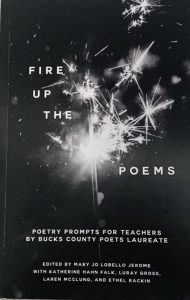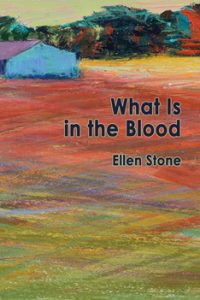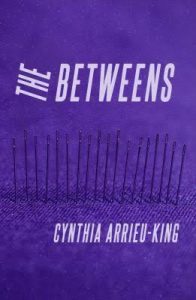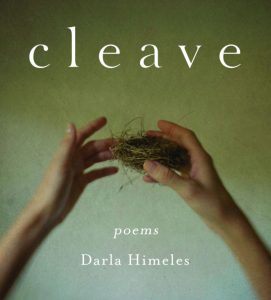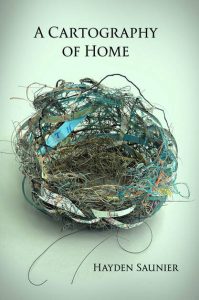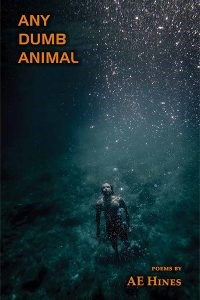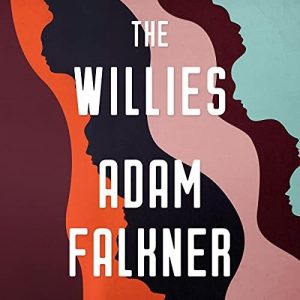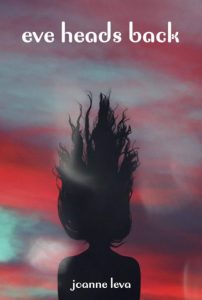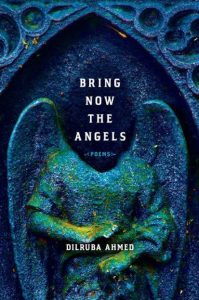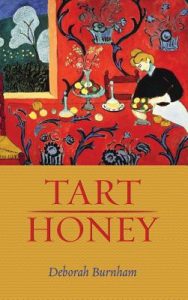
Deborah Burnham, Tart Honey [Resource Publications, 2018]
Deborah Burnham’s collection of poetry, Tart Honey, carefully examines the intricacies of love and marriage that span decades, one of which was spent almost entirely long-distance. Burnham is the Associate Undergraduate Chair of the English Department at the University of Pennsylvania, where she teaches classes in literature, craft, gender studies, creative writing, and a number of other subjects. Her other works include the award-winning collection titled Anna and the Steel Mill, and several chapbooks. She is currently working on a young adult fiction novel.
Tart Honey intimately combines a deep and complex understanding of love with the complicated resentment and sadness that hard years away often facilitate.
The collection is separated into four parts: I. The Rich Salt of Your Skin, II. We’d Wake Early and Eat Apples, III Shadows Waver Between Your Shape and Mine, and IV. A shirt, a shroud. The first section mainly deals with physical intimacy and loneliness. The second section is filled with food imagery, placing an emphasis on self-soothing, comfort, and missing the whole of a person. The third section deals with strife and a feeling of resentment for the situation of long distance, and finally the last section handles a feeling of dread and fear of a grief that hasn’t yet come.
There’s a theme of usefulness that runs through this collection, especially as one ages, from the poem entitled “On the gift of a photograph”:
Thanks for telling me
About Andre Kertesz, and how in 1915
He snapped two Polish Soldiers on their field
And how he kept his dignity clean and useful (11),
To the poem called, “Useful” which starts:
The snarky Roman cities the ancient practice of tossing
Old me from bridges when they’d reached sixty,
“The age of uselessness” (50)
And continues with, “I’m thinking of ‘useful’ because you, my love, turn sixty / in the spring (50).” Usefulness as one grows older is a consistent point of distress in these poems, specifically due to lower energy, and the fear of decay. Another aspect of this theme is clearly the idea that one struggles to feel useful to their partner while away from them for extended periods of time. Burnham thanks her husband for telling stories and talking to her on the phone, as that is one small way she can assure him that he and his love are useful to her.
A shining moment in this collection exists in the slow and intimate development of grief.
In the poem“Will,” Burnham writes:
The man I’ve loved for forty years will die
In less than forty years, and, like most men,
He has not willed his precious objects (53).
Then she describes the action she imagines taking after her husband dies, specific to the table he owns:
When he no longer sits there
I will soak and bend it to a boat
And take my grief to sea, and inch of wood
Between my skin and the abrading
Salty sun (53).
In the very next poem, she states:
Because women in my mother’s family
Live more years as widows than as wives,
They could write a manual for the first years
Of grief, which come without directions (54).
Burnham is deconstructing her feelings of strife having to be without her husband by imagining the world as it will be when he doesn’t come home, and will never come home again. She speaks of the impossibility of truly understanding her life without him, and how instead she turns to mystical fantasies, drawing on history and myth. Also in the final section is the poem called, “One way to end” where she describes the tales of elderly individuals wandering deep into the woods, seemingly confused. She writes:
I might leave the house to look for you, walking
A straight line, turning only to avoid
A sapling, a fallen log, but as the woods
Thicken, I’ll leave bits of clothing- a sleeve,
A shoe, caught on encircling limbs.
I’ll walk so near the great rough trunks that
Cell by cell, my grateful drying flesh
Will wear to nothing (62).
In this poem, it’s unclear if the speaker’s husband has died or if he is just away, blending the feeling of grief she has with the current act of missing her husband as he works across the country. The similarities between the two emotions are shown to be dizzying, even while one is imagined and looming and one is very present.
Deborah Burnham’s collection takes her reader through her decade of being separated by space and her decades of being filled with love slowly, and with a steady hand. Her diction is clear and written with a level of authority I found to be fascinating. Tart Honey is truly a collection for those who need a companion in their grief, their loneliness, and, perhaps most honestly, their love.
